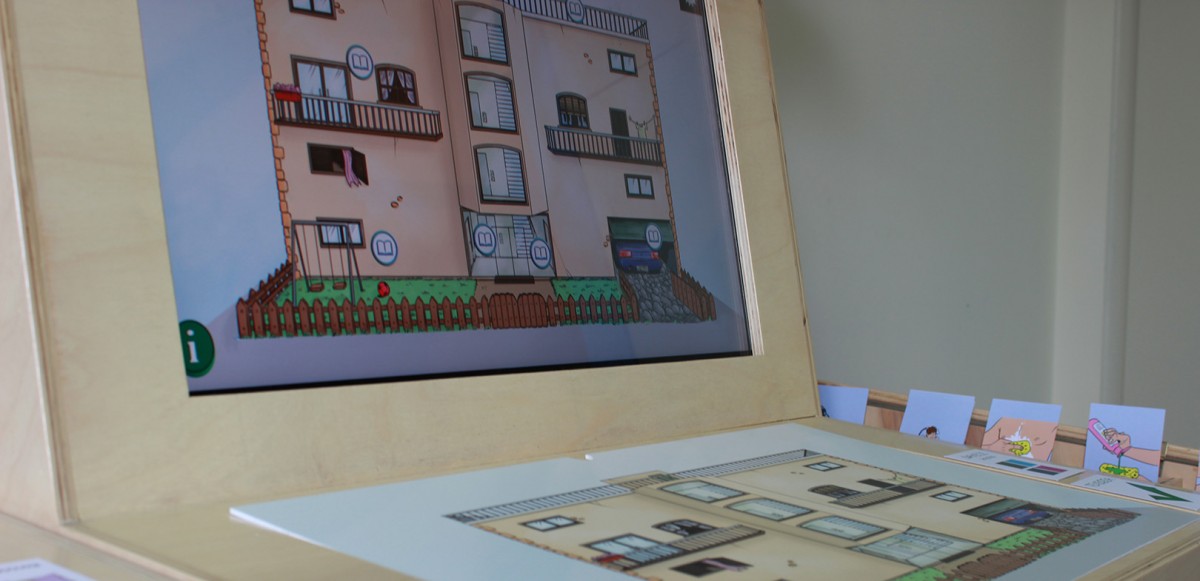
Home Game is an interactive educational game, supporting touch and card-based interaction, that aims to familiarize children with household objects, as well as the overall home environment daily activities.
Home Game is an educational game that aims to familiarize preschoolers and/or cognitive impaired children with household objects, the overall home environment and the daily activities that take place in it. In addition to touch based interaction, the game supports physical interaction through printed cards on a tabletop setup by detecting and tracking the cards placed on the game board.
The Home Game features six types of mini-games and an extensive analytics framework that allows the trainers to monitor (even in real-time) the progress of their students.
The system comprises a touch screen, a computer, and a high resolution camera overlooking the area in front of the screen. A custom casing has been designed especially for this game to hide the technology from plain sight.
The system is accessible for individuals with visual or mobility impairments. This is achieved through a specially designed accessibility controller that allows users to select an interaction mode according to their needs. Specifically, the controller supports interaction with user interface elements through screen reader and sequential scanning techniques, thus facilitating the seamless navigation of the full content and the complete set of functions of the application.